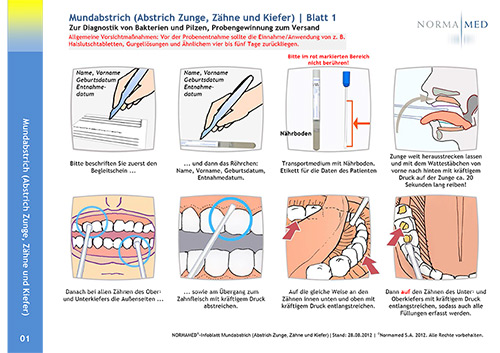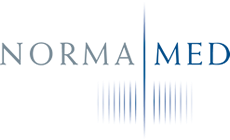Schmerzen, Brennen beim Wasserlassen, häufiger oder ständiger Harndrang – warum schlagen bei Dir Mittel dagegen nicht an? Warum kommen Blasenentzünungen immer wieder? Warum sind Deine Nieren so empfindlich? Stimmt Deine Befürchtung, dass dauernd verschrieben Antibiotika immer weniger helfen?
Wir haben festgestellt, dass chronischen Blasen- und Nierenentzündungen oft mit Darminfektionen und Verdauungsstörungen verbunden sind. Unsere unsere Check-ups zeigen Dir, ob auch bei Dir die Vorgeschichte Deines Leidens anderswo im Körper liegt – ob sich zum Beispiel köpereigene Kolibakterien und Enterokokken an Stellen finden, wo sie nicht hingehören
Blasen- und Nierenentzündungen
Erkrankungen der Blase und Nieren treten oft plötzlich auf. Meist haben sie eine lange Vorgeschichte. Anders, als oft vermutet, liegt diese in Störungen des Verdauungssystems.
In der Folge können durch „Persorption” vermehrt körpereigene Bakterien durch die Darmwände in den Blutkreislauf dringen, die dann von der Niere erfasst und in die Blase ausgespült werden. Indizien für ein gestörtes Verdauungssystem sind u. a. wiederkehrende Verstopfungen oder chronische Durchfälle, weiche Stuhlgänge oder Unverträglichkeiten.
Für einen Behandlungserfolg bei Erkrankungen der Blase und Nieren muss deshalb die Verdauung in die Diagnostik einbezogen werden
Normamed-Ursachenmedizin bei Blasen- und Nierenentzündungen
Die Normamed-Ursachenmedizin setzt hier umfassender an. Offenbar ist es nicht damit getan, Gründe für Beschwerden nur am Ort des Geschehens zu suchen und zu behandeln.
Wechselwirkungen von Infektionen, Organfunktions- und Verdauungsstörungen können zu einer Verkettung von sich häufenden Beschwerden führen. Dadurch können Ursachen verschleiert werden und viele Vorgänge im Körper zunächst unbemerkt bleiben.
Fehlbesiedelungen unterbinden und verhindern
Es gilt in der Diagnostik und Therapie also, die Gründe für solche Fehlbesiedlungen zu verstehen, diese selbst zu vermeiden und nach Behandlungen die Neuinfektion zu unterbinden. Dazu gehören auch eigene und durch Partner bedingte Schmierinfektionen.
Die richtigen Konsequenzen ziehen
In diagnostics and therapy, it is therefore crucial to understand the reasons for such incorrect colonisations, to avoid them at your end and to prevent new infections after treatment. This also includes own and partner-induced smear infections.
Drawing the right conclusions
- Probengewinnung sollte sich nicht nur schematisch auf den Urin konzentrieren, sondern je nach körperlicher Lage auch andere Parameter umfassen.
- Schmierinfektionen und direkter Kontakt mit den Darmbakterien müssen auf anderen Schleimhäuten konsequent vermieden werden.
- Alle Störungen des Verdauungssystems müssen untersucht und behandelt werden, um die Durchgängigkeit der körpereigenen Bakterien einzudämmen.
- Andere Infektionen müssen systematisch gesucht werden, um die Wechselwirkung von Infektion und Entzündung zu bekämpfen.
- Niere, Blase und Prostata müssen mittels Ultraschalldiagnostik exakt untersucht und auch mittels TCM-Therapie ursächlich behandelt werden.
Wichtig: Partner in die Information und Behandlung einbeziehen!
Die Einbeziehung von Partnern in die Untersuchungen und Behandlungen spielt eine große Rolle. Es kann sein, dass der eine Partner keine Beschwerden aufweist – aber andauernd den anderen neu infiziert. Solche „Ping-Pong-Gefahren” sollten bei jeder Behandlung chronischer Beschwerden und bei ständigen Entzündungen im Urogenitalbereich beachtet werden.
Für einen verantwortungsvollen Umgang mit Antibiotika
Es kommt immer wieder vor, dass Antibiotika durch gehäufte und periodisch wiederkehrende Einnahme ihre Wirkung nicht mehr entfalten können und zudem den Körper belasten. Dies kann durch ein abgestimmtes Einnahmeprogramm vermieden werden. Eine Vermeidung häufiger Antibiosen ist nur mit Kenntnis der Zusammenhänge möglich.
Chinesische Tees können bei Entzündungen der Blase und der Nieren eine geeignete Behandlung mit Antibiotika gut unterstützen oder in manchen Fällen sogar ersetzen. Viele akute und chronische Beschwerden lassen sich unter Umständen sehr gut auch ohne Antibiotika behandeln.
Fieber und eine fortgeschrittene akute Erkrankung bedürfen aber in vielen Fällen zusätzlich dennoch der Antibiotika.
Eine vorausgegangene oder integrierte vollständige Diagnostik spart Medikamente, schont den Körper und verhilft erst zu dem gewünschten Erfolg.


